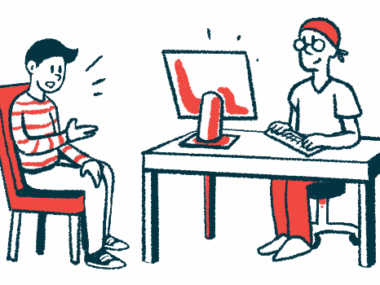We Do Not Talk About Sleepovers
Written by |

When I was in middle school, I had sleepovers with my friends every weekend. My 11-year-old neurotypical daughter, Ryan, has had sleepovers with her cousins since she was a toddler, and now she has them with her friends. But my 13-year-old daughter, Cammy, who has Rett syndrome, has had offers from only three people: her grandpa and two aunts. They are the only three people in our lives who feel comfortable and confident in taking on her needs and a potential sleepless night so that Cammy can experience a night away from her parents.
As Cammy continues to grow older, nonexistent invites like this become more obvious. Things she should be doing to socialize, she simply isn’t doing. There are no invitations to parties, sporting events, plays, or Friday movie nights. No one asks to come over to our fully equipped home to watch a movie with her.
I don’t know if people find her intimidating because she has special needs. I don’t know if people just don’t think about this bit of socialization that is missing from our lives. I don’t know if people are afraid. I don’t know if people just don’t want to do it. I struggle with all of these thoughts and feelings incessantly.
The ironic thing is that Cammy actually is easier to entertain and hang out with than a neurotypical child. She doesn’t talk back. She won’t run away from you. All she wants to do is to be with someone. All she wants to do is lie around and watch a show with someone.
I dream of the day when more people will ask to learn how to care for Cammy so that they can take her on outings or for overnight stays. I dream of the day friends take her to our local downtown area to sit at a Starbucks, get some ice cream, or just walk around like typical teenagers. I dream of the day someone asks to stay overnight at our house, because we are equipped with everything she needs, and then tells my husband and me to have a staycation in the city.
This is another one of those things special needs parents do not talk about. It’s just another thing that we grieve. It’s another piece of normalcy that Rett syndrome has robbed from us.
Note: Rett Syndrome News is strictly a news and information website about the disease. It does not provide medical advice, diagnosis, or treatment. This content is not intended to be a substitute for professional medical advice, diagnosis, or treatment. Always seek the advice of your physician or other qualified health provider with any questions you may have regarding a medical condition. Never disregard professional medical advice or delay in seeking it because of something you have read on this website. The opinions expressed in this column are not those of Rett Syndrome News or its parent company, Bionews, and are intended to spark discussion about issues pertaining to Rett syndrome.







Leave a comment
Fill in the required fields to post. Your email address will not be published.